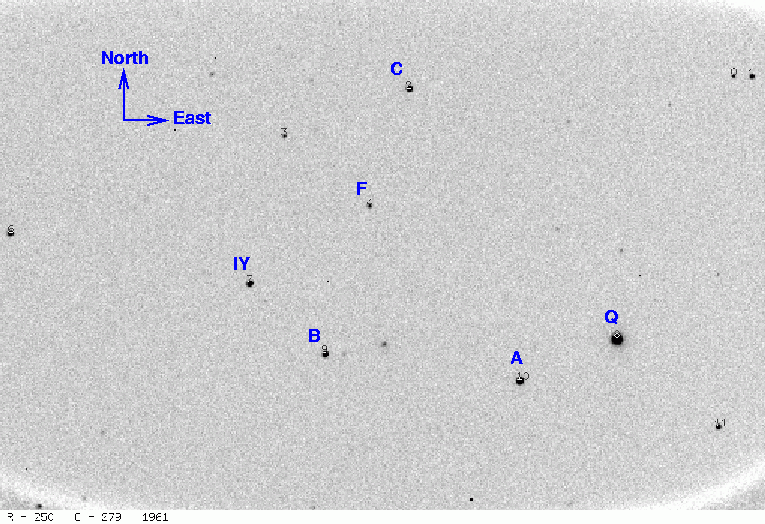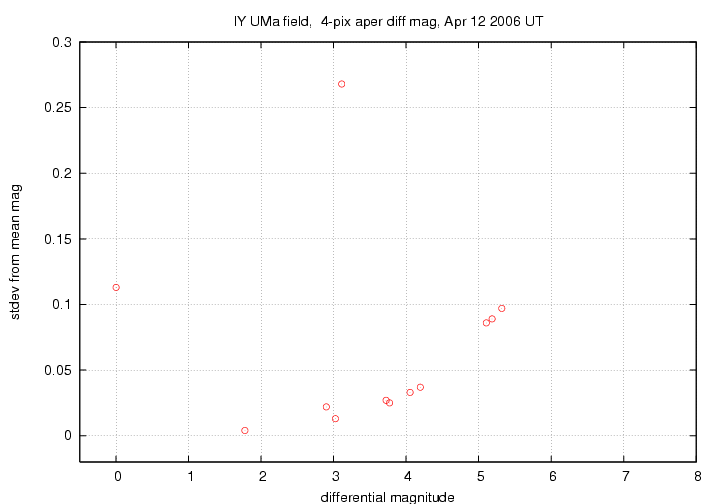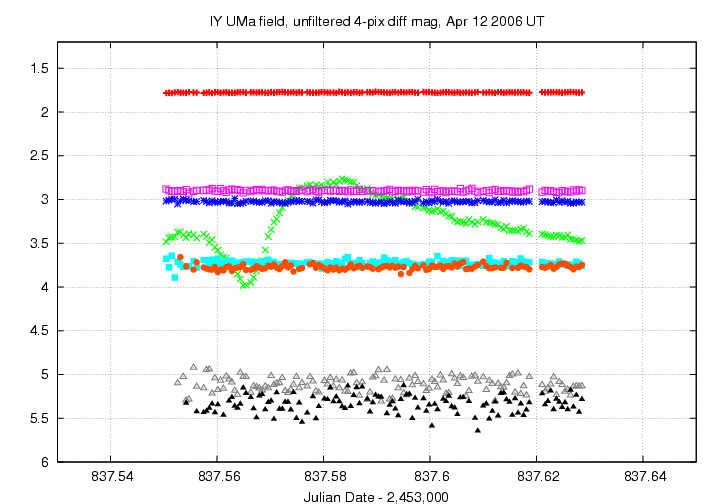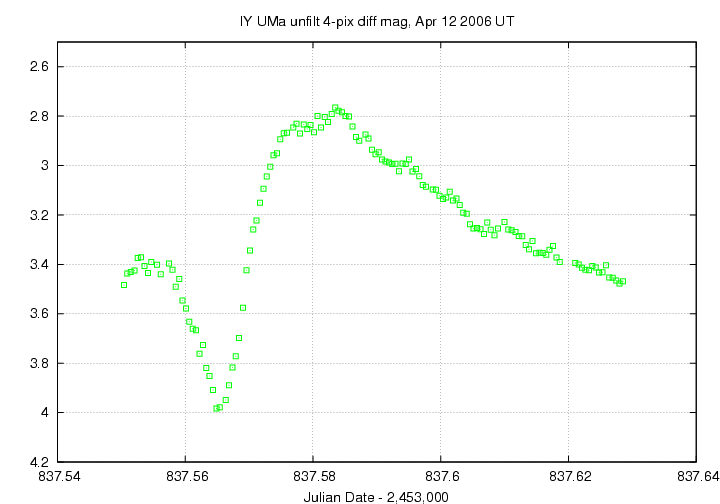
On the night of Apr 11/12, 2006 EST, I used the RIT Observatory's 12-inch Meade telescope and SBIG ST8E CCD camera to take pictures of the cataclysmic variable IY UMa, a CBA target
The plan:
Notes from the night
For background information on this cataclysmic variable, read
Note added 4/12/2006: Patrick Schmeer provides the
following measurements, which date the start
of the outburst very well:
UMAIY 20060406.333 170CR SPK
UMAIY 20060407.308 169CR SPK
UMAIY 20060408.211 133CR SPK
UMAIY 20060409.202 130CR SPK
Instrument: University of Iowa, Rigel Telescope (0.37-m Cassegrain)
Sequence: Henden and Sumner (R magnitudes derived from V and B-V)
If we call the start of the outburst UT Apr 08, 2006, then my observations here, on UT Apr 12, occur on day 4.
This is a chart of the field based on images taken last night. The bright star "Q" was saturated in my images, so I discarded it from the solution. Click on the chart for a larger version.
Arne Henden has calibrated stars in this field. He finds that the star marked "B" = USNOB1.0 1481-0247104 in the chart above has V = 13.554. My instrumental photometry falls somewhere between V and R passbands. I will shift the instrumental magnitudes so that the star "B" has Henden's mag V = 13.554.
I measured the instrumental magnitude of each star with aperture photometry, using a radius of 4 pixels = 7.4 arcseconds and sky defined by an annulus around each star. Following the procedures outlined by Kent Honeycutt's article on inhomogeneous ensemble photometry, I used all stars available in each image to define a reference frame, and measured each star against this frame.
Below is a graph of the scatter in differential magnitude versus magnitude.

IY UMa is the star with the enormous scatter of over 0.25 mag. Star "B" has differential magnitude about 3.0 and scatter of 0.012 mag.
Light curves for selected stars in the field are shown below. Star "A" is in red, star "B" in blue. IY UMa, shown by light green crosses, is clearly varying like crazy. My observing run corresponds roughly to one period of the orbit.

Here's a closeup of the variation in IY UMa itself, again marked by the light green crosses.

I've made a table of the measurements themselves, with three different flavors of time. The differential unfiltered magnitudes from the ensemble solution have been shifted so that the value of star "B" matches the Henden photometry.
Here's the start of the table.
# Measurements of IY UMa made at RIT Obs, Apr 12, 2006 UT, # made by Michael Richmond. # All data taken with 12-inch LX-200 + no filter + SBIG ST-8 CCD # no focal reducer, so at native f/10 # Each exposure 30 seconds long; tabulated times are midexposure # and accurate only to +/- 1 second. # 'mag' is a differential magnitude based on ensemble photometry # which has been shifted to match Henden's V-band magnitude # of star B = USNOB1.0 1481-0247104 so V=13.554. # # UT day JD-2,450,000 HJD-2,450,000 mag uncert Apr12.05043 3837.55043 3837.55204 14.012 0.023 Apr12.05095 3837.55095 3837.55256 13.966 0.020 Apr12.05147 3837.55147 3837.55308 13.960 0.021
Last modified 4/12/2006 by MWR.